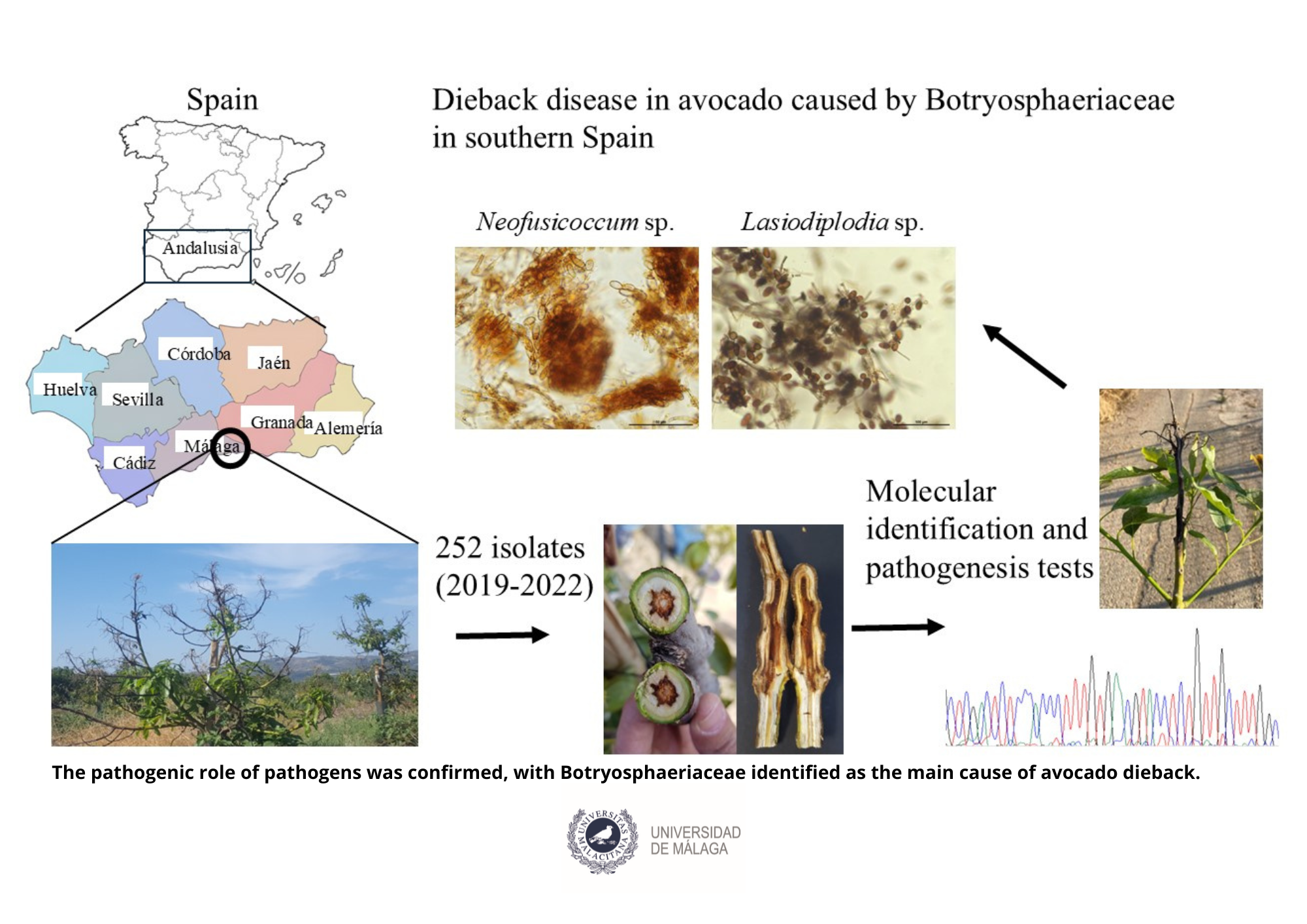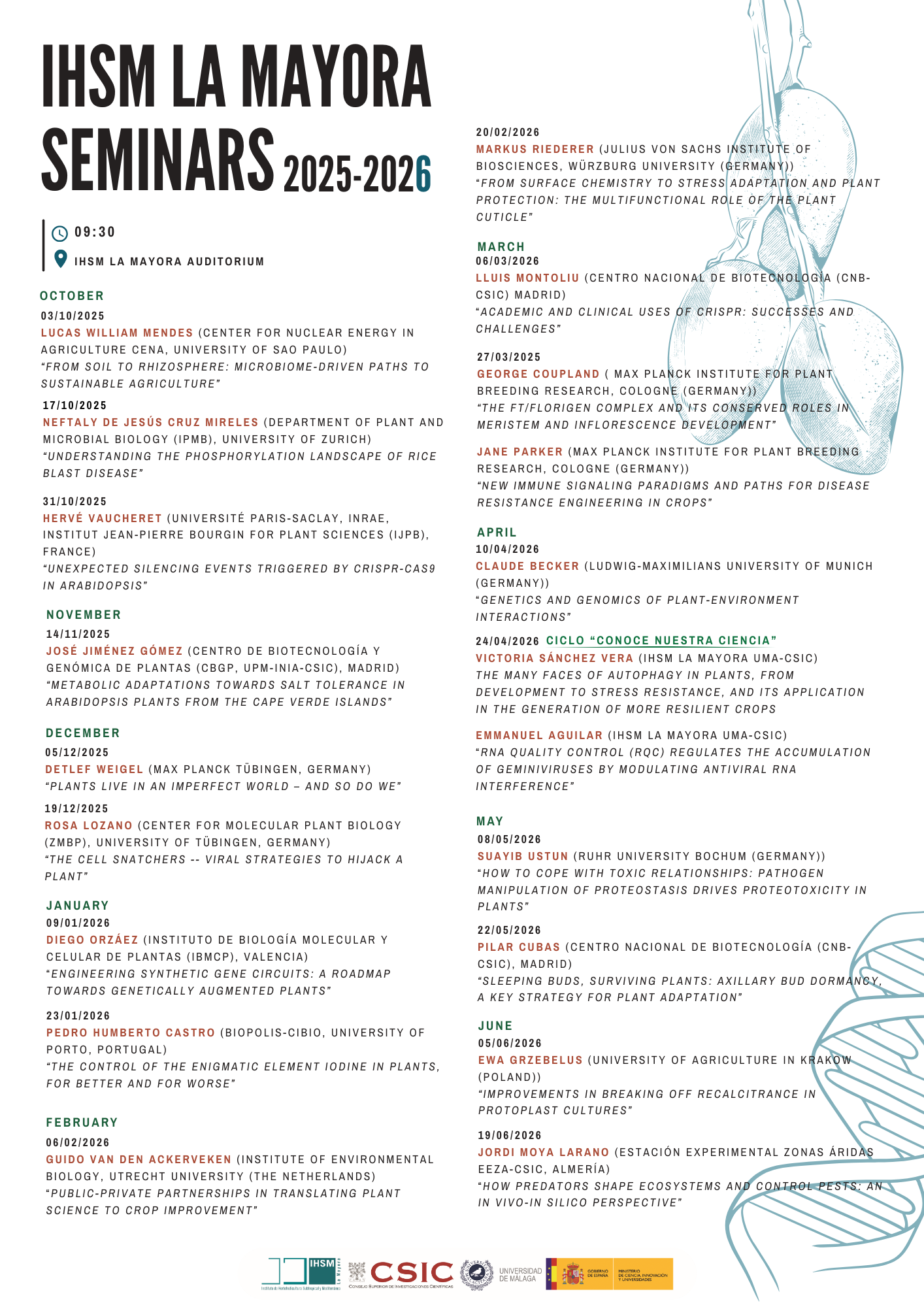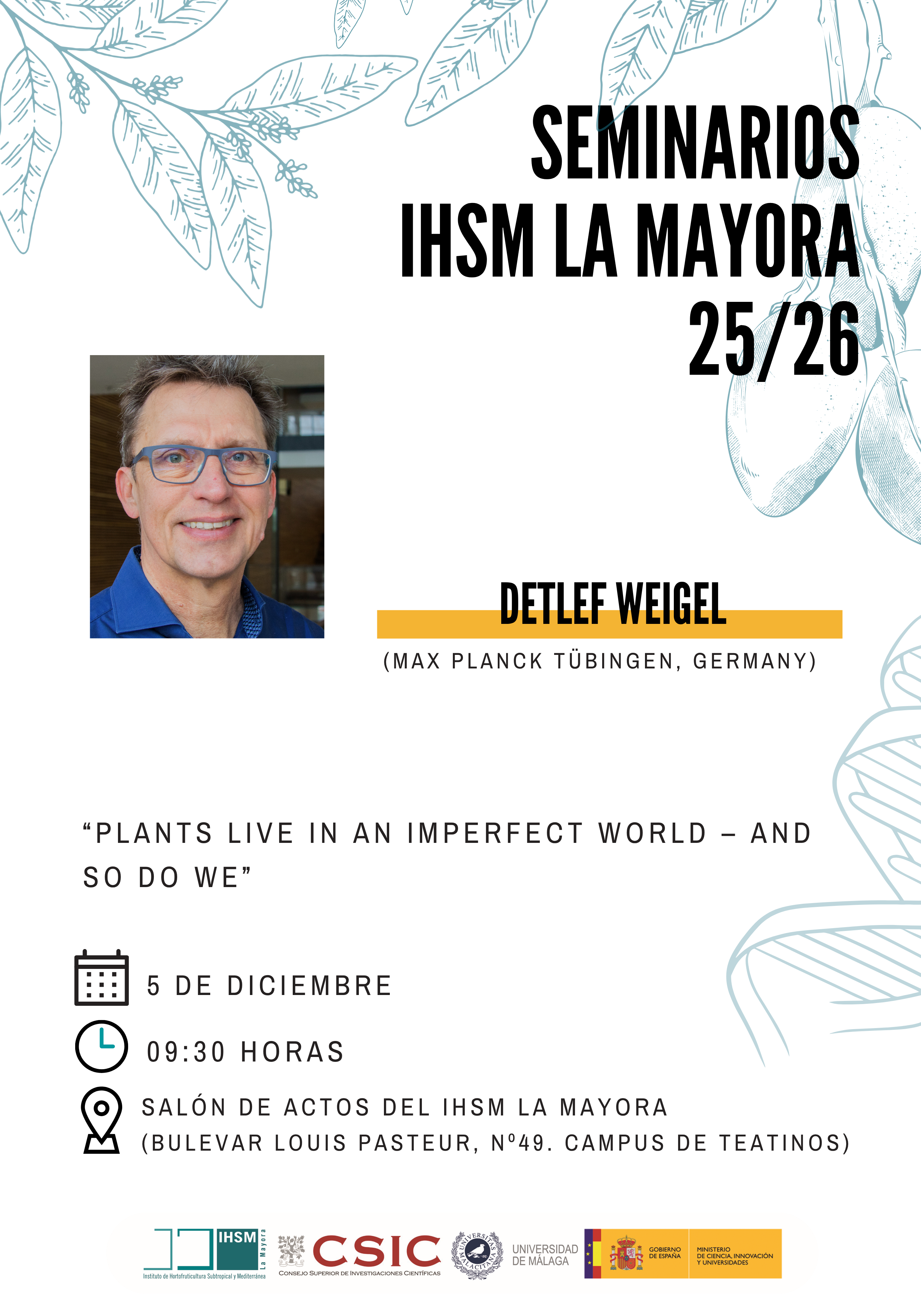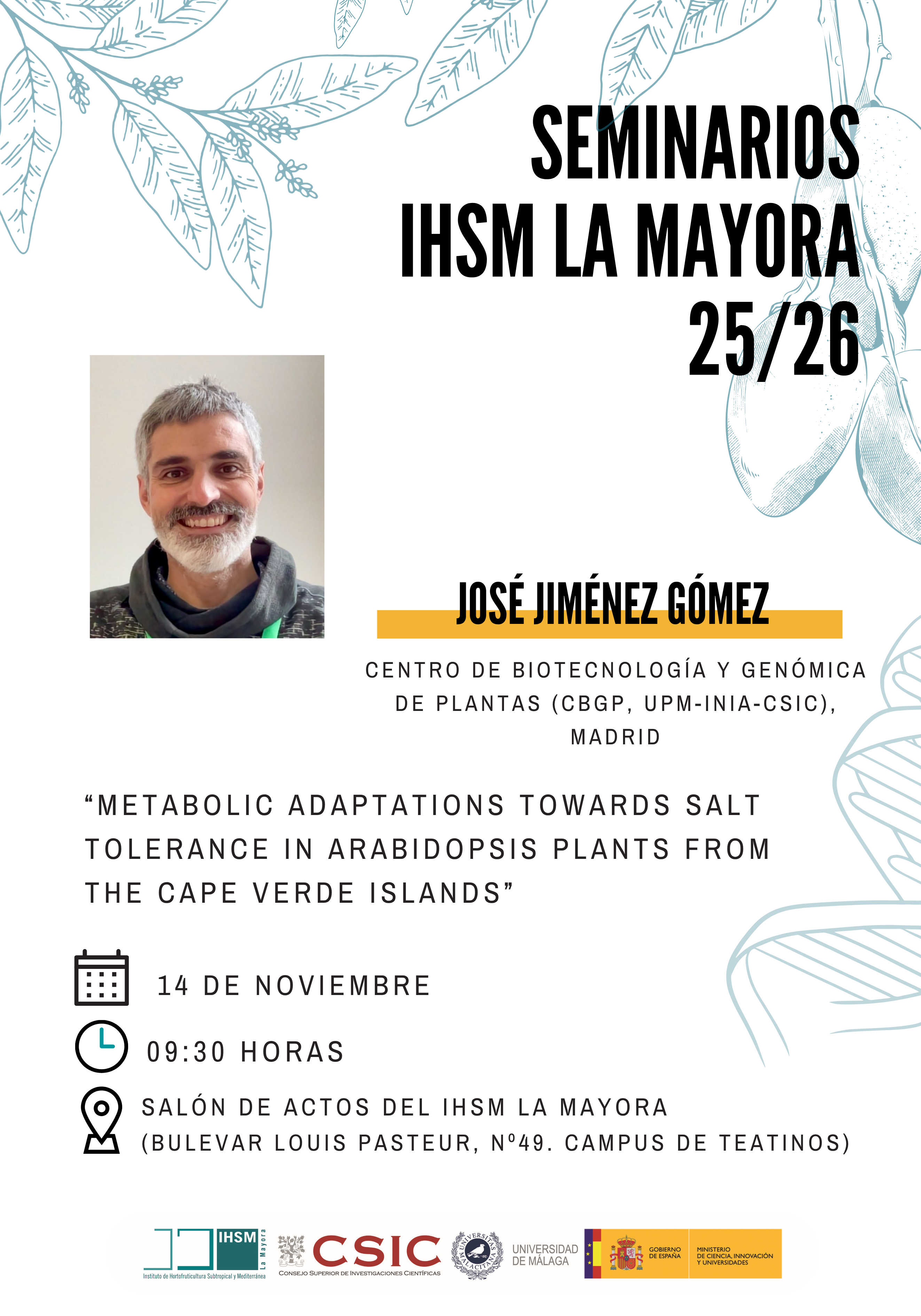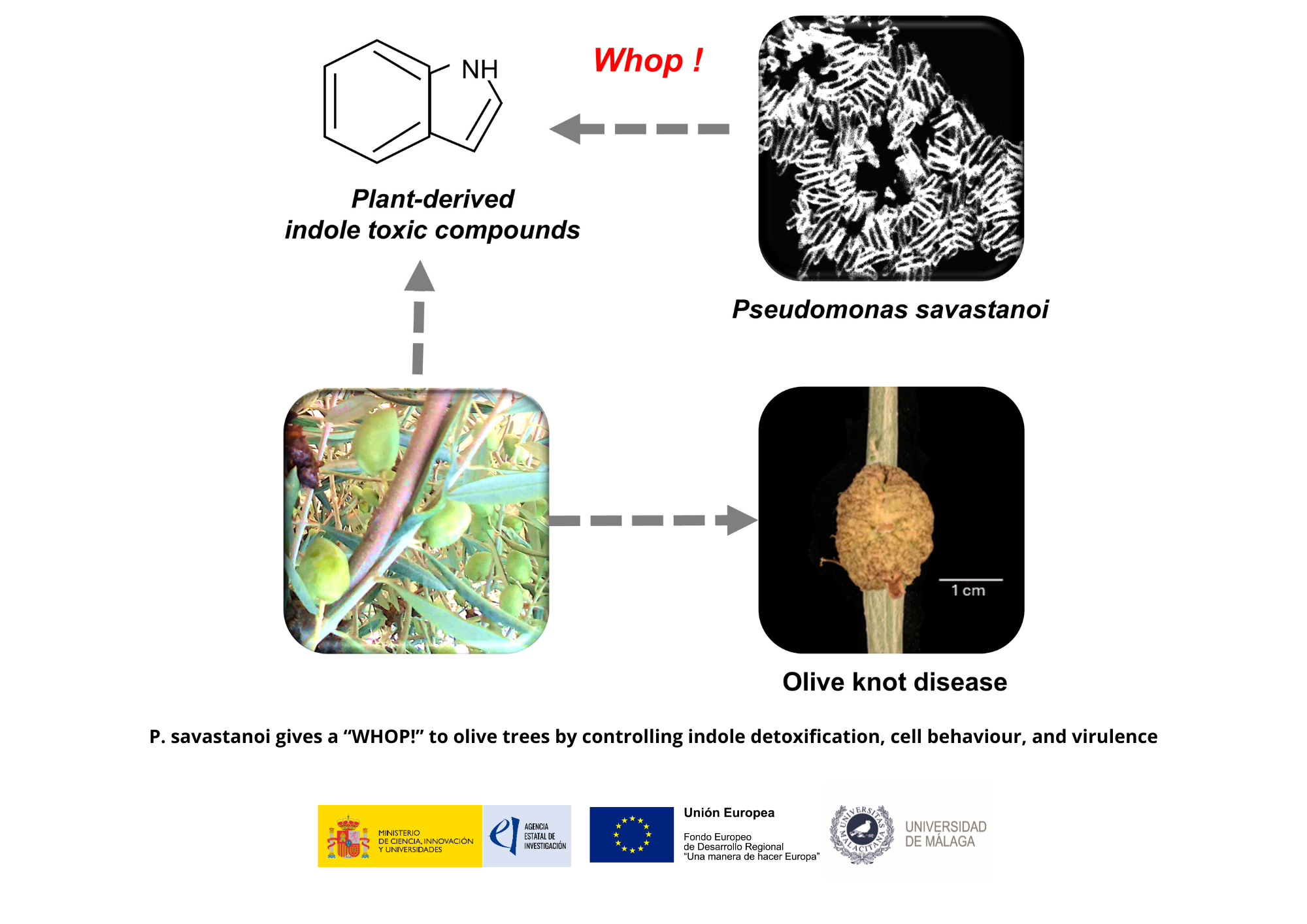
Seminarios IHSM La Mayora - Robert Jackson (U. de Birmingham)
Bacteriophages (phages) are viruses that infect bacteria and most are distinguished by one of two replication strategies; infection followed by lysis or by lysogeny. Lysogenic phages will usually integrate into the host chromosome and be copied by the host bacterium, whereas lytic phages use the host cell to replicate new phage particles and force cell lysis to release the phage to the environment. Both types offer fascinating insights to host bacterial evolution, as lysogens can alter the host genome through carriage of genes, while lytic phages are highly specific to their host and have adaptations to target specific receptors. I will discuss research studying phages that infect Pseudomonas syringae pathogens of cherry. One particular lysogenic phage was found to carry a type III effector gene that could be induced by stimuli including UV light. Mixing of the host bacterium with a phage-less P. syringae host on a plant leaf and with UV stimulation, led to transfer of the phage and effector gene to the phage-less strain. Lytic phages hold potential for biocontrol use, but the main challenge lies in obtaining specific strains that do not compromise efficacy, either due to antagonistic interactions or due to the emergence of phage-resistant bacterial hosts. I will describe an experimental evolution approach that has been used with five lytic phages to examine how phages and bacteria evolve to each other, and new genetic variants, over time. These show genomic changes in the bacterial membrane-phage tail structures indicative of phage-receptor evolution. I will discuss how these observations are important when considering the development of new biocontrol approaches.

